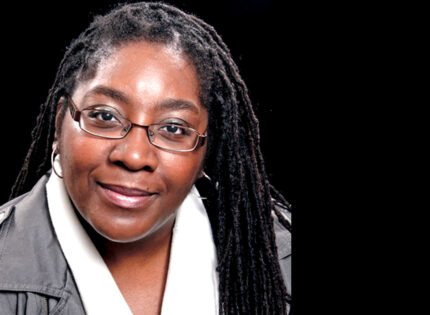
Who will come to the Commission’s aid to ensure a passing grade? It is blatantly clear that the Commission continues to act deceptively unfair, and should reveal for all to see their Systemic Racism Policy. The Quebec Human Rights Commission is responsible for promoting and upholding the principles of the Charter of Human Rights and Freedoms by any appropriate measures, including investigating into possible cases of discrimination and the introduction of litigation.
However, recent situations have shown that the Commission is guilty of a breach: not practicing what they preach.
In fact, the very investigators have been accused by complainants of acting like creatures, with repeated, flagrant mishandling of racial discrimination cases.
The Commission has been dogged by deep-rooted problems, ranging from a disturbing absence of diversity, to others far clearer to see— serious delays and inconsistent capacity to address system-wide issues.
The time has arrived for the Commission to come clean, and bare the truth about how things have been.
Composed of a Commission and a Human Rights Tribunal, Quebec’s Human Rights Commission, is structured as a “first generation system,” which, simply means that it is decades old, with its legislation even anteceding the Canadian Charter. Such a system besides proving grossly dysfunctional has also enfeebled the public’s confidence in its human right’s protection system. Notwithstanding, other provinces have progressed to more effective models. Complainants in British Colombia and Ontario can advance directly to a tribunal, where without the burden and expense of months, or even years, of investigation cases are heard both quickly and openly.
Comparatively, today in Quebec complainants whose cases make it through preliminary screening and mediation are yet forced to wait years for justice, in similar manner as those accused of discrimination that may wait years have their names cleared. Outside of the delays, getting a case heard is an almost impossible feat.
Additionally, the fact that for more than 10 years the Commission has not brought before its Human Rights Tribunal, any case of systemic racism in schools or public services.
Recent cases in question concerns Adrienne Charles a Black mother of Haitian origin, whose two sons, from as early as 2016 allegedly faced systemic and direct racism while students at McCaig Elementary School of the Sir Wilfred Laurier School Board. According to the mother, the complaint was totally mishandled by the Quebec Human Rights & Youth Rights Commission, who refused to interview her two sons and their witnesses.
During the three years of investigation there was no investigative activity in the file for 14 months.
Another English-speaking Black mother also corroborates the story of the slipshod manner of investigation conducted by the Commission.
Her complaint of systemic race and gender discrimination encountered by herself and son while in the Youth Protection system was dismissed, and again during the Commission’s three years of investigation neither was her son nor her witnesses interviewed.
In 2017, a father Eric Tran filed a complaint with the Commission against College Charlemagne, claiming that his daughter, while a student, had been bullied over a long period, and sadly was the one who was expelled when the school conducted an investigation. According to the father when his daughter appeared before the Human Rights Commission, she was grilled, at times aggressively, for 90 minutes. The father further alleges that during the session it became apparent to him that the investigator had heard the school’s side of the story before talking to his daughter. Director of the Centre for Research Action on Race Relations (CRARR), Fo Noemi contends that such behavior would constitute a breach of protocol, as investigators are supposed to speak to complainants before talking to the party targeted by the complaint.
Equally troubling is the knowledge that the complaint against the said investigator in Tran’s case is one of three that CRARR has filed against her.
One is left with a growing sense of unease that the principal agency tasked with ensuring absence of racism, discrimination and bias is the one doing the least effective work.
Another aspect of the problem may be that the true meaning of racism in Quebec has not been fully understood where it matters most.
Systemic racism — including, but not exclusively, anti-Black racism, anti-Indigenous racism, Islamophobia and racism experienced by other racialized communities — is deeply ingrained not only into our day-to-day lives, but also into the institutions on whom the public rely for critical services.
The Commission, functioning currently on a beleaguered past and a deceptively disputatious present has always resisted dealing with the issue of systemic racism; and long criticized by community members and complainants alike for its monolithically white, mostly francophone staff.
Efforts to correct this obvious ineptitude, served as the catalyst that brought about the demise of former president Tamara Thermitus, the first person of colour, and notably the first woman to be nominated as president in the commission’s history.
The refusal to interview Black children and their witnesses reveal yet another grossly disquieting fact regarding the Commission’s record on system racism.
The public and victims alike have been duped into believing that the Commission has a policy regarding the handling of
cases of systemic racism.
The Commission needs to urgently reboot and this time include the
truth. The deception must cease forthwith, and the Commission not only called upon but also held responsible and accountable for the production and introduction of a policy on systemic racism.
Conclusively, more internal changes are necessary if the Commission is to obtain and maintain a
passing grade.
The Centre for Research Action on Race Relations (CRARR) has called upon the Commission to hire more Black lawyers within the investigations unit and lawyers in the legal affairs unit, who possess first-hand experiences with, and a solid understanding of racism and discrimination.
Additionally, CRARR has also entered into communication with various governmental ministers and agencies detailing the
Commission’s flaws in the handling of the Charles’ case, further requesting that the case be also sent to an external investigator adroit in systemic racism.
Even the most myopic can see that on systemic racism the Quebec Human Rights Commission has no policy.
However, we cannot silently gaze in awe, and allow the continuation of such a flaw.
If the Commission fails to truthfully and effectively perform its mandated task, then for its removal or restructuring the public should ask.
Aleuta– The struggle continues.












